Coca-Cola is one of the market’s most recognizable beverage brands, having earned its reputation through meeting consumers’ requirements. While Coca-Cola has just launched its own brand of energy drinks—Coke Energy—you are probably more familiar with the company’s soft drink.
Each corporation sells a vast number of brands, with The Coca-Cola Company having the largest market share. This is evident in beverage sales, with Coca-Cola Classic outselling Pepsi.
The Coca-Cola Company sold its international energy business to Monster, including NOS, Full Throttle, Burn, Mother, BU, Gladiator, Samurai, Nalu, BPM, Play and Power Play, Ultra and Relentless, and Monster sold its non-energy business, including Hansen’s Natural Sodas, Peace Tea, and others.
The Coca-Cola Company currently owns approximately 16.7 percent of Monster as a result of the deal-making this company now owns the above-mentioned energy drinks indirectly.
Let’s deep dive if you want to know more.
About The Coca-Cola Company
The Coca-Cola Company is one of the world’s largest beverage companies, providing more than 500 sparkling and still brands to consumers.
This company’s portfolio includes 20 billion-dollar brands, including Diet Coke, Fanta, Sprite, Coca-Cola Zero, Vitaminwater, POWERADE, Minute Maid, Simply, Georgia, Dasani, FUZE TEA, and Del Valle, and is led by Coca-Cola, one of the world’s most valuable and known brands.
Consumers in more than 200 countries enjoy their beverages at a rate of 1.9 billion servings per day, thanks to the world’s largest beverage distribution infrastructure.
About The Monster Beverage Company
Monster Beverage Corporation, headquartered in Corona, California, is a holding corporation that does no actual business except through its consolidated subsidiaries.
Its subsidiaries distribute the following energy beverages:
- Monster Energy® energy drinks
- Java Monster® non-carbonated coffee + energy drinks
- Übermonster® energy drinks
- M3® Monster Energy® Super Concentrate energy drinks
- Monster Rehab® non-carbonated energy drinks with electrolytes
- Monster Energy Extra Strength Nitrous Technology® energy drinks
- Muscle Monster® Energy Shakes
- NOS
- Full Throttle
- Burn
- Mother
- BU
- Gladiator
- Samurai
- Nalu
- BPM
- Power Play™
Energy Drinks Owned By Coca Cola
Now let’s have a short discussion on a few energy drinks owned by Coca-Cola.
NOS
NOS is a fantastic energy drink that may assist power your workouts, gaming activities, and even studies.
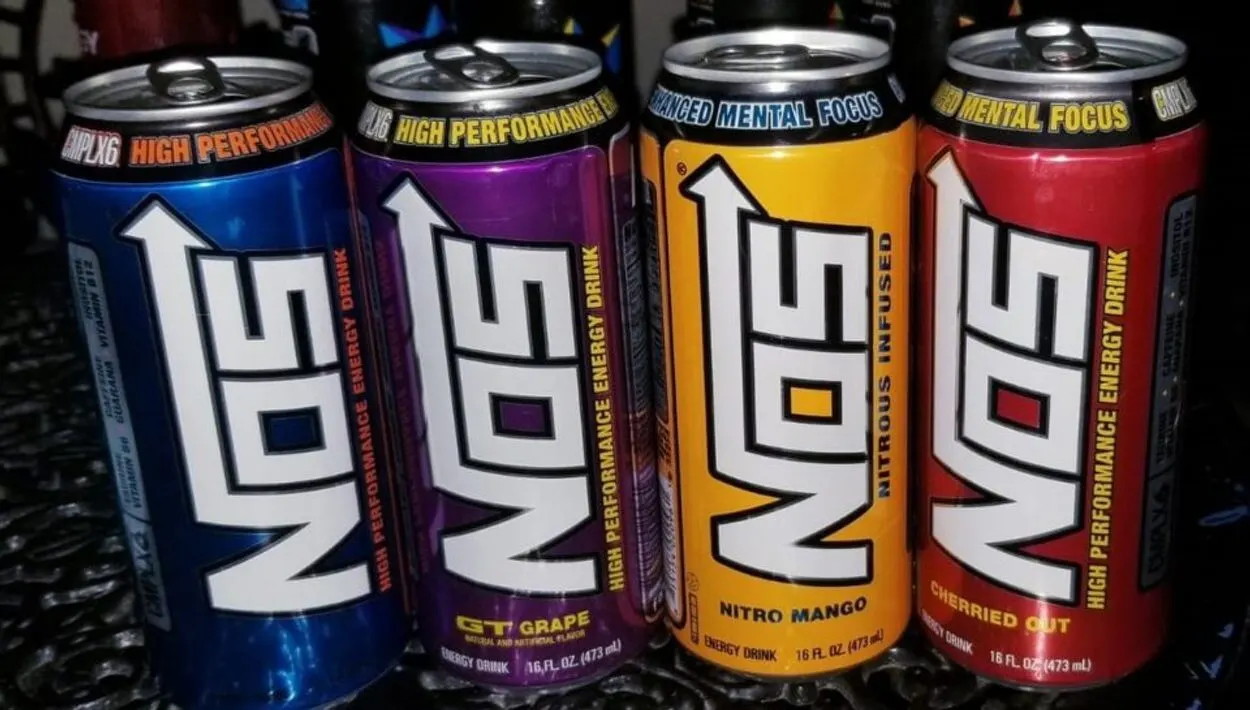
NOS provides a strong energy boost with the help of 164mg of caffeine with a pleasant taste, however it falls short in terms of sugar (54g) and price in my opinion.
Even while NOS is excellent, there are some drawbacks. Aside from its restricted flavor variety, it also has a high sugar level, which may cause a sugar crash and other health problems if consumed in excess.
Also, the price is a little excessive ($3.99 per 16 fl oz. can) in comparison to many of its primary competitors, making it a little more difficult to justify than something more affordable.
Overall, I think NOS is a fantastic choice if you enjoy the taste, don’t mind the sugar, and only need a quick boost now and then.
Full Throttle
Full Throttle appears to be the energy drink that would complement your busy lifestyle and overall health since it is loaded with caffeine and other components.
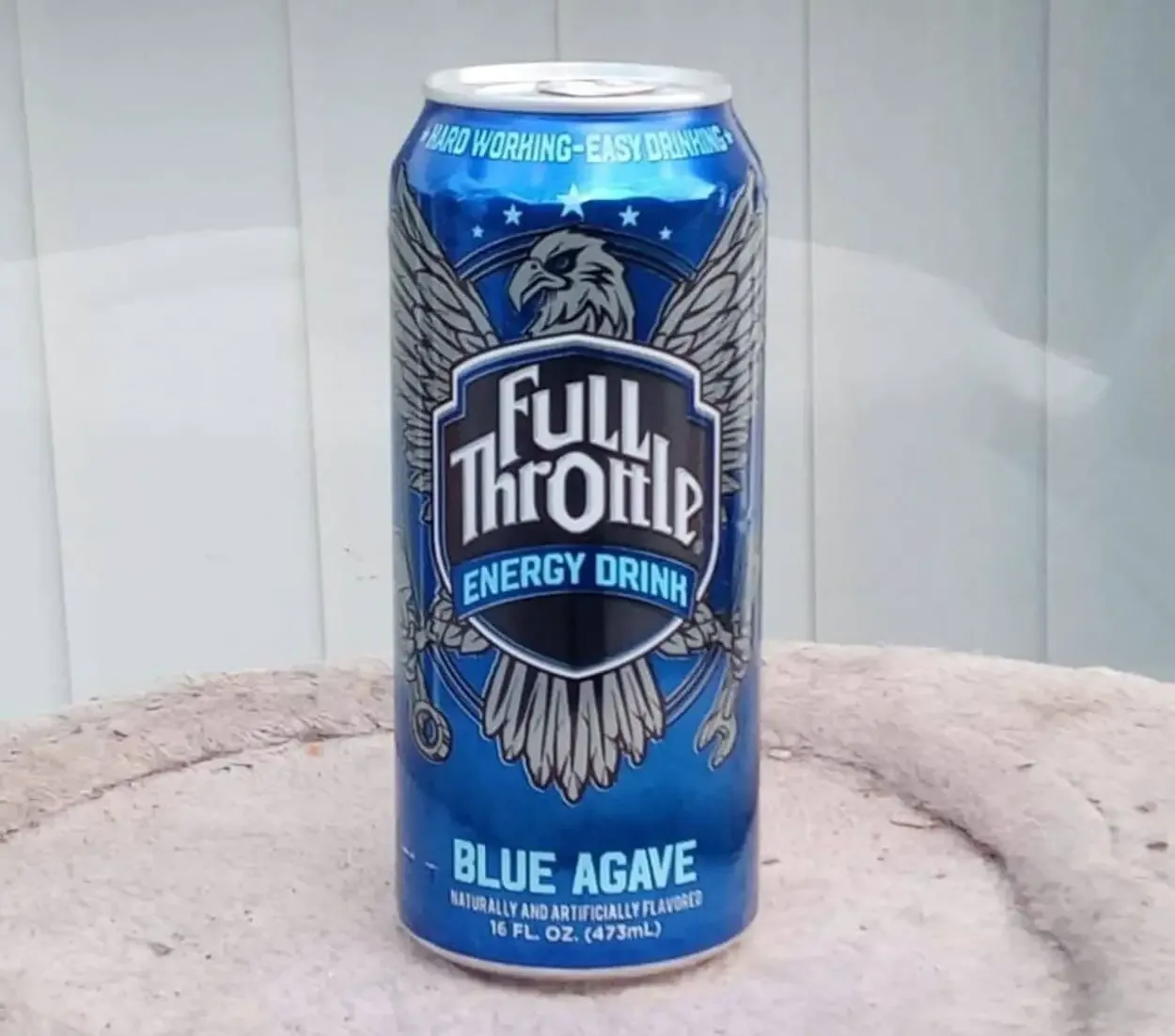
A single serving of Full Throttle includes 160mg of caffeine along with 55g of sugar along with a few other necessary ingredients.
In addition to sugar, it contains high fructose corn syrup, which, in my opinion, merely adds to the sugar content and sweetness of the drink and is unnecessary.
A can of Full Throttle costs around $3, which I believe is a little pricey considering Full Throttle lacks additional components like taurine or BCAAs that can be found in many other energy drinks with a similar price tag.
Burn
Burn claims to provide you with a smooth, refreshing flavor that will fuel your fire. DJs, artists, producers, and festival attendees all can be benefitted from Burn Energy. Burn Energy includes 160mg of caffeine along with 26.60g of sugar per serving.
Overall, I think Burn Energy is a fantastic choice for those who need a quick boost of energy.
Mother
Mother energy drink is a local favorite in Australia and New Zealand. It contains old favorites like caffeine and sugar, which provide the energy boost you might need for your activities.
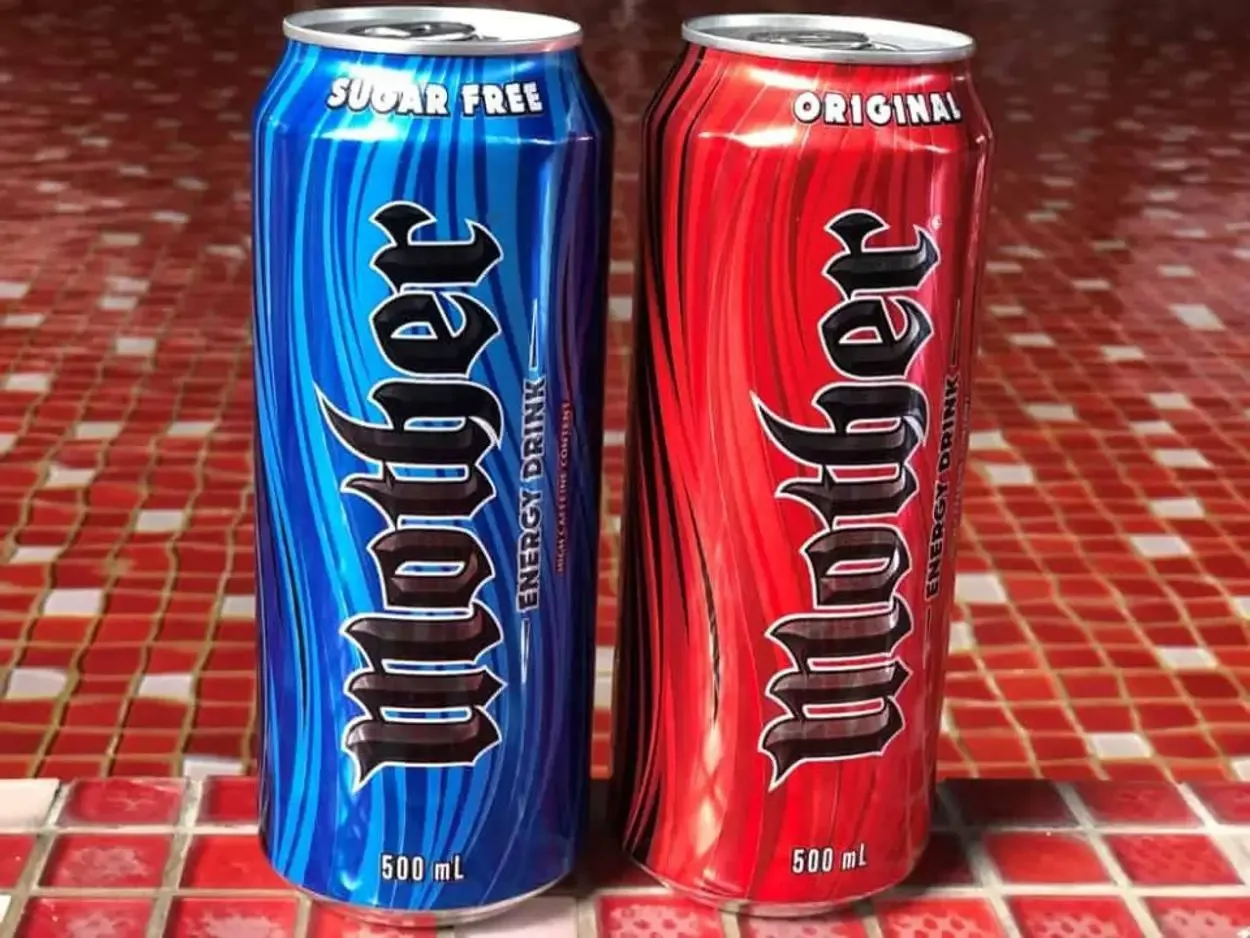
A single serving of Mother energy drink includes 160mg along with 51g of sugar.
Mother Energy Original is a good energy drink with high sugar and calorie count that’s ideal for a quick pick-me-up, but it’s not something you should consume on a regular basis.
Mother Energy is a very standard, sugary energy drink, with enough caffeine to keep you alert and enough sugar to give you a big buzz when you finish one.
That said, its high sugar level means you shouldn’t consume it on a daily basis, and I would recommend going for low to zero-calorie energy drinks instead for your daily caffeine dose.
A standard 500ml can of Mother Energy will cost you roughly $3, excluding delivery and promotional events.
Bu Energy Drink
Bu energy drink claims to produce make high-functioning functional beverages that actually taste good.
Bu energy drink includes 103mg of caffeine along with 57g of sugar in its formula. Probiotics and antioxidants are both beneficial to health.
Bu energy drink claims to be made with antioxidant-rich green and black teas, which aid in immune system function.
A standard single-serving Bu energy drink will cost you roughly $3, excluding delivery and promotional events.
Relentless
Relentless energy drink is manufactured in Ireland and is popular in the United Kingdom. The Coca-Cola Company launched the brand in 2006, and it was the first to sell larger drink sizes (500ml cans) in the United Kingdom.
Relentless energy drink includes 160mg of caffeine along with 24g of sugar in its formula.
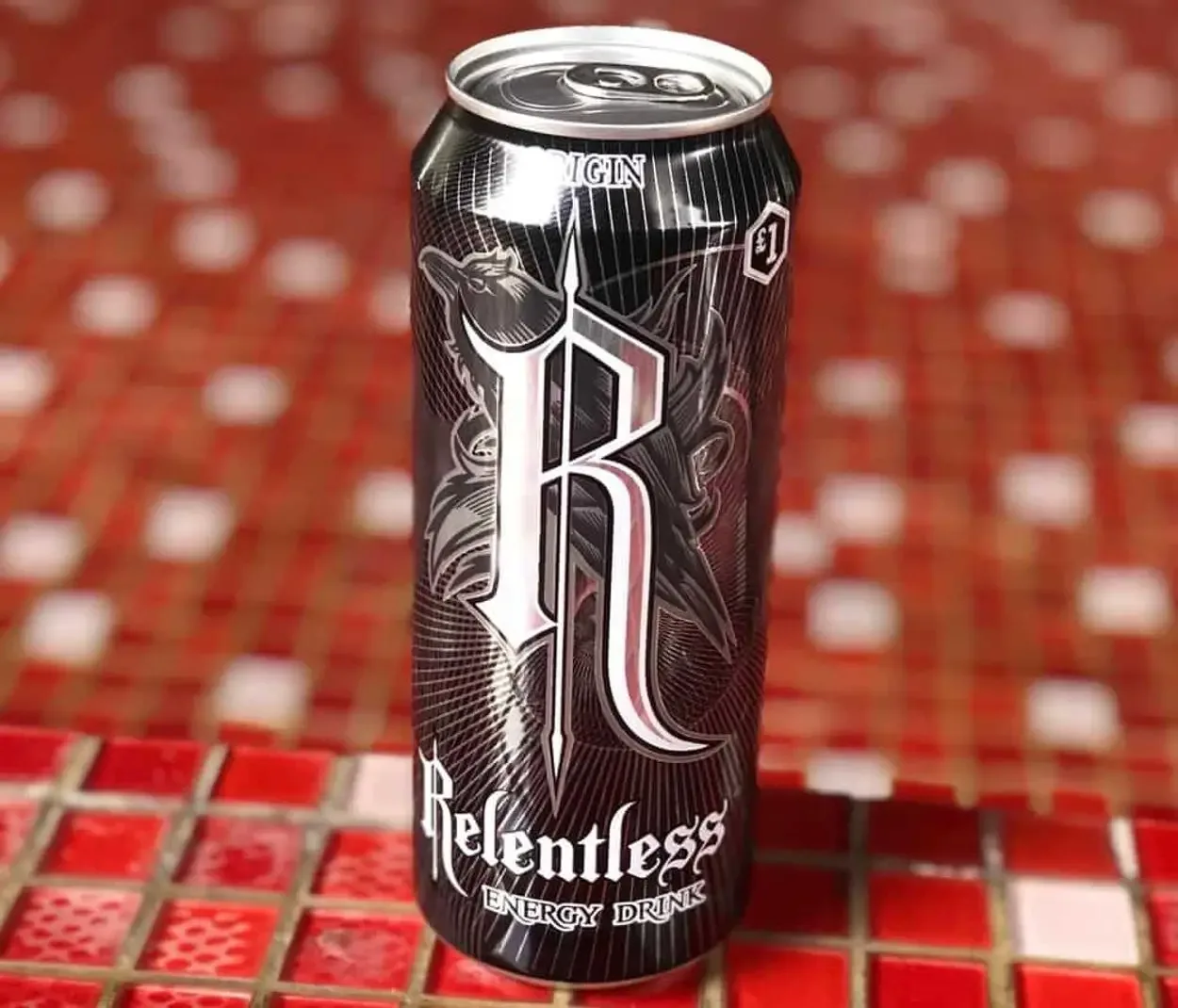
The boosting effects of Relentless are not that bad as they can power you up through your work and you can maintain your concentration for the day. You might even manage to survive the day without topping up with a coffee.
However, Relentless, like all other foods and beverages, can have serious adverse effects if consumed in excess. This is primarily due to excessive caffeine and sugar consumption.
According to the pricing I have seen on Amazon.co.uk, a can of Relentless costs roughly £1 on average, which I think is fairly reasonable.
Does Coca-Cola Own Monster Energy Drink?
Coca-Cola owns a fair share of Monster making it an indirect owner of Monster.
Monster Energy is synonymous with energy drinks and it’s a fairly recognized energy drink, with its distinctive green-claw design running down the side of a black can.
Monster Energy includes 160mg of caffeine with 55g of sugar in its formula. This energy drink also includes taurine, Panax ginseng, and l-carnitine l-tartrate which is quite favorable in my opinion.

Monster isn’t the energy drink for you if you want a clean, crisp soda-like energy drink; it’s more akin to the little syrupy feel that most classic energy drinks have.
It’s also fairly sweet, which, depending on your tastes, maybe a little too much for my liking.
Of course, this is just my take on the original Monster Energy flavor, so your mileage may vary based on what you like. On that topic, if you don’t like the taste of Original Monster, the obvious best-tasting flavor from Monster is Monster Zero Ultra, which contains far less sugar and calories.
A 12-pack of 16 fl. oz. Monster energy drink cans cost about $19 on average, which works out to about $2 per can.
Does Coca-Cola Have Its Own Energy Drink?
Coca-Cola has released Coca-Cola Energy, its own energy drink.
Coca-Cola Energy (Coke Energy) is a relatively new beverage created by The Coca-Cola Company. It is sold in many countries, including the United States.
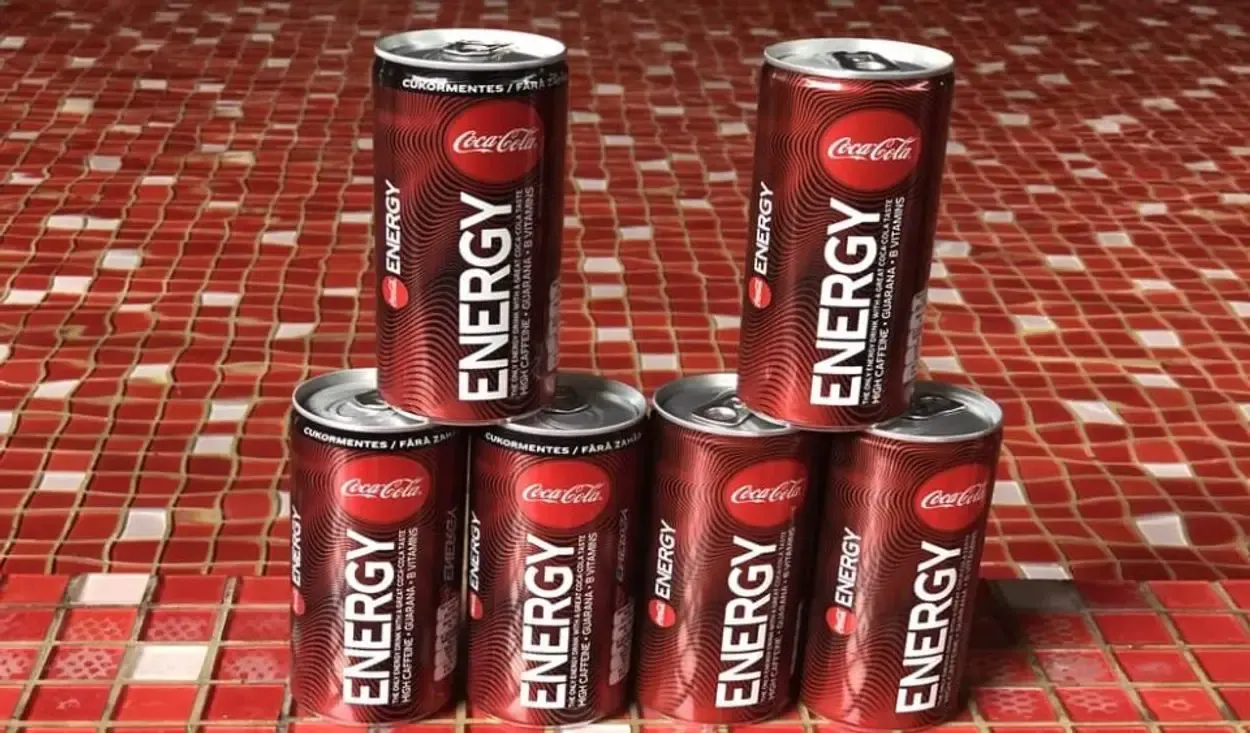
Although caffeine is present in the regular Coke, this energy drink variant has significantly more of it.
Caffeine Content
An 8.4 fl. oz. can of Coke Energy has 80mg of caffeine, which is a reasonable quantity for everyday usage.
Caffeine levels of 50mg to 100mg per serve are ideal in my opinion. More than 100mg is usually too much for me, leaving me nauseated and unable to concentrate.
Caffeine consumption should not exceed 400mg per day, according to the FDA. That equates to around 5 cans of Coke Energy every day. However, I don’t recommend drinking so many in a single day because you’ll get too much of the other ingredients.
Sugar Content
Coke Energy has 26g of sugar, which is a lot and maybe harmful to your health, especially if you’re a woman.
Take a look at this research’s recommended daily sugar intake shown below and you’ll see what I mean.
| Gender | Recommended Daily Intake of Sugar (Maximum) |
| Men | 150 kcal / 9tsp/ 37.5g |
| Women | 100 kcal / 6tsp / 25g |
The 26g of sugar in a can of Coke Energy is significantly more than what women should consume on a daily basis. Although, to be honest, you wouldn’t be exceeding the limit that much.
Even for guys, I believe it is an excessive quantity to consume. However, you will have some leeway to consume additional sugary foods in your diet if you so desire.
What’s crucial to note here is that energy drinks aren’t usually your sole source of sugar, so you’ll need to balance it out with what you get from other meals you eat on a regular basis.
You’ll need to keep track of this because having too much sugar in your diet can lead to a sugar crash later on.
When this happens, you will experience a sudden loss in energy, which will have a detrimental influence on your productivity and overall physical well-being. As a result, you would be worse off after drinking Coke Energy than you were before.
Vitamins and Minerals
Coke Energy, for example, contains vitamin B6 and niacin, sometimes known as vitamin B3. The drink also contains trace amounts of guarana and citric acid, both of which are typically beneficial. Vitamin B3 is beneficial for increasing cognitive power and decreasing diabetes.
Meanwhile, guarana can benefit in a variety of ways:
- Reduces fatigue
- Promotes weight loss
- Boosts heart health
- Improves skin appearance
- Provides pain relief
However, you should keep in mind that ingesting too many vitamins can also be harmful. You could, for example, have nausea, diarrhea, and hair loss. So keep in mind to establish a balance here.
Your daily vitamin consumption, like everything else in life, must be monitored. Nobody understands the optimal vitamin mix that would best fit your unique health state better than you.
Another thing to keep in mind is that the company claims that Coke energy drinks are taurine-free.
The Best Energy Drink: REIZE
REIZE contains only 50mg of caffeine, making it a less caffeinated alternative to Coke Energy. Aside from that, every REIZE drink is sugar-free, so you don’t have to worry about how it will affect your everyday diet.
REIZE also contains other beneficial components such as ginseng, taurine, and B vitamins. Coke Energy does not contain taurine or ginseng, which I believe provides REIZE the advantage over Coke Energy.
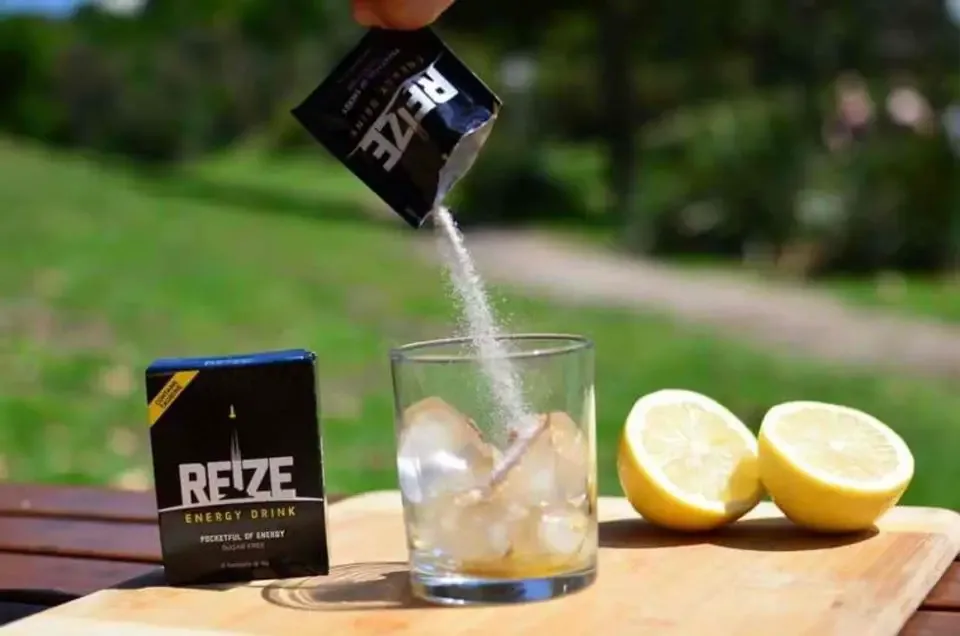
Another thing I like about REIZE is that it’s a powder energy drink in the form of a sachet. This makes it very easy to transport and mix up fresh whenever I want a new energy drink.
The right combination of substances all works together to provide you with a fantastic and long-lasting energy boost.
I should also mention that REIZE ships right to your door for roughly $1 per drink, including shipping, so you don’t have to be concerned about how you’ll obtain your regular energy boost.
Conclusion
Monster purchased The Coca-Cola Company’s international energy business, which included NOS, Full Throttle, Burn, Mother, BU, Gladiator, Samurai, Nalu, BPM, Play and Power Play, Ultra, and Relentless, and Monster transferred its non-energy business, which included Hansen’s Natural Sodas, Peace Tea, and others, to The Coca-Cola Company.
The Coca-Cola Firm currently owns around 16.7 percent of Monster, and as a result of the transaction, this company now indirectly controls the aforementioned energy beverages.
Coca-Cola is one of the market’s most famous beverage brands and has built its name by addressing the needs of consumers. While Coca-Cola has just debuted its own brand of energy beverages called Coca-Cola Energy, you are probably more familiar with its soft drink.
However, leaving all this behind, if you are looking for an energy beverage that is low in caffeine and sugar, and includes a few other necessary vitamins and minerals giving you the necessary support, you can always go for REIZE.
REIZE also contains other beneficial components such as ginseng, taurine, and B vitamins. Should I also mention that REIZE ships right to your door for roughly $1 per drink, including shipping, so you don’t have to be concerned about how you’ll obtain your regular energy boost.

